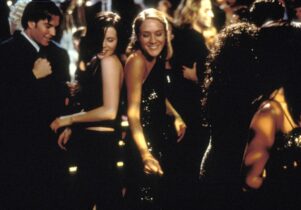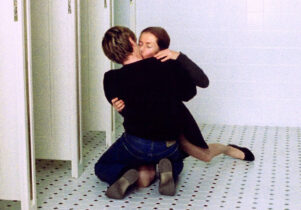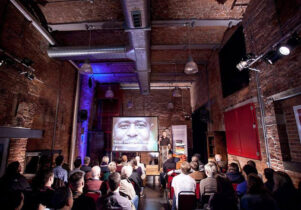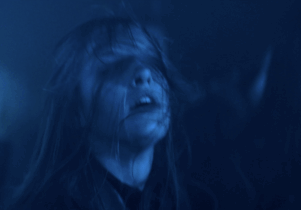Preview/ Sunset + Q&A at HOME
Tom Grieve, Cinema EditorBook now
Preview/ Sunset + Q&A
Always double check opening hours with the venue before making a special visit.
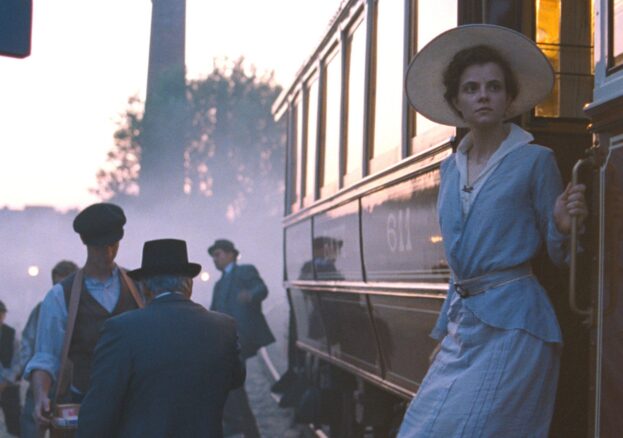
“The horror of the world lies behind these infinitely pretty things”
Son of Saul director László Nemes’ much-anticipated new film arrives at HOME this month, with the Hungarian filmmaker himself in town for a Q&A following a special 35mm presentation on Sunday 19 May. With Sunset we’re launched into Budapest, early 1900s, during the climactic days of the Austro-Hungarian Empire. Our anchor is Írisz Leiter (Juli Jakab), a young woman who arrives in Budapest in order to work as a milliner in the renowned shop founded by her parents, who died years earlier in a fire. A go-to for high society’s hats, Írisz nevertheless senses something awry, and before long she is combining her work in the shop with a search for a long lost brother, who may or may not be involved in revolutionary plotting.
For much of its runtime, Sunset operates almost as a period noir as Írisz floats through Budapest chasing dark secrets and whispers of misdeeds. Nemes’ camera revolves around her, never straying more than two feet from her head for the 140-minute runtime as we assume her subjective point of view. It’s a dizzying, claustrophobic approach that is similar to that used in Son of Saul (the films share director of photography Mátyás Erdély.) That film was widely praised — and won an Academy Award too — but a vocal number of critics reacted angrily to the way that the novel visual scheme was applied to such serious subject matter. Nemes has clear ideas about how we should approach historic periods cinematically, but his audacious formal strategy certainly serves the story here in Sunset.
we’re required to remain alert and engaged in order to try (and mostly fail) to decipher the violent truths that the city’s inhabitants seem reluctant to release
We follow Írisz as she pursues the ghost of her brother through the city, gleaning shadowy snippets and ugly shards of information. Answers seem to lurk at the edges of the frame or unspoken on the tips of tongues. Travelling so closely alongside Írisz, we’re required to remain alert and engaged in order to try (and mostly fail) to decipher the violent truths that the city’s inhabitants seem reluctant to release. An oft repeated anecdote regarding The Big Sleep is that neither director Howard Hawks nor writer Raymond Chandler had a complete grasp of the intricacies of the plotting. Audiences didn’t stand a chance, but it hardly mattered. Who knows whether Nemes and credited co-writers Clara Royer and Matthieu Taponier have a full handle on proceedings here, confusion and frustration are induced by design.
In an opening crawl, the film tells of the grandeur and status of Budapest circa 1910. Set in the sophisticated milieu of the famous milliners and their high-society customers, what are we to make of the horrors Írisz uncovers? I won’t spoil the final shot here, but it suggests a deep-seated societal sickness with only one potential outcome. With this Nemes may overreach, but it is hard to question his ambition. In scope and construction Sunset is about as grand and intricate as they come, and it is a pleasure to try to keep with this wildly labyrinthine work, regardless of whether you decide to buy its conclusions.
